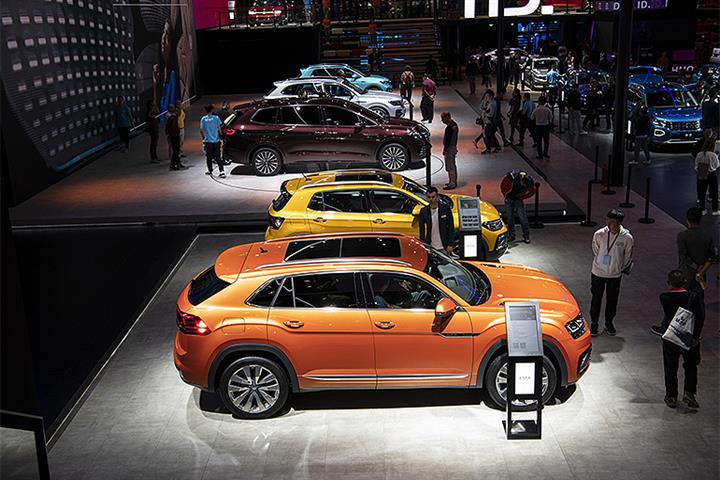 China’s Auto Sales Reportedly Begin to Pick Up as Chip Supply Eases
China’s Auto Sales Reportedly Begin to Pick Up as Chip Supply Eases(Yicai Global) Nov. 18 -- Auto sales have started to recover in China as the shortage of semiconductors used in vehicles eases, but supplies are still inadequate overall, China Securities Journal reported today.
Demand is strong and buyers can purchase most of the popular models from dealerships without making reservations, CSJ reporters found after visiting a number of 4S stores in Beijing.
Buyers had to wait for at least two months, a Nio sales director said on Nov. 16, but recently that shortened to between one and one and a half months.
A customer who booked a Porsche Cayenne in March said he can get the car by the end of next month. The plan was to pick up the car at the end of August, but sales staff said that due to the carmaker facing a severe chip shortfall the delivery date would be delayed until the end of November, or even later, he added.
Some 2,330,000 cars were produced in China last month, a 12.2 percent increase on September, with the number sold up 12.8 percent from a month ago at 2,333,000, data from the China Association of Automobile Manufacturers showed.
According to a salesman at a FAW-Volkswagen Audi 4S store in Beijing, their current inventory is not enough because chip supply has only just eased. “Our store normally has up to 400 cars in stock, but now it has only 150 to 200. Of course,” he said, adding that “there were only 20 to 30 in stock in September before the chip shortage was mitigated.”
The rebound in sales should be attributed to the recovery in chip supply. “The workforce at wafer fabs in Malaysia were back to 100 percent by the end of October, and operations are now back to normal,” CSJ reported, quoting an executive of a private equity firm in the semiconductor industry. “Fab staff also undergo regular coronavirus tests.”
Vehicle shipments and cloud data center servers will improve as chip firms actively expand capacity and boost supply with Malaysian fabs returning to full production amid increased capacity since October, Morgan Stanley said on Nov. 16.
But the shortage remains a problem. According to Liu Sheng, an executive at a Chinese carmaker, various kinds of chips are necessary for a car, and the lack of any of them will prevent carmakers from finishing products. Liu said chips for some in-demand models are still not enough, and the supply of auto chips remains insufficient compared with actual demand.
Major chipmakers have said the shortage will last for some time. According to MediaTek Chief Executive Rick Tsai, it will not ease until 2023. Robert Bosch CEO Volkmar Denner said that while the one-off supply shock in the semiconductor market has passed, there is still not enough capacity to meet global demand.
Editor: Peter Thomas